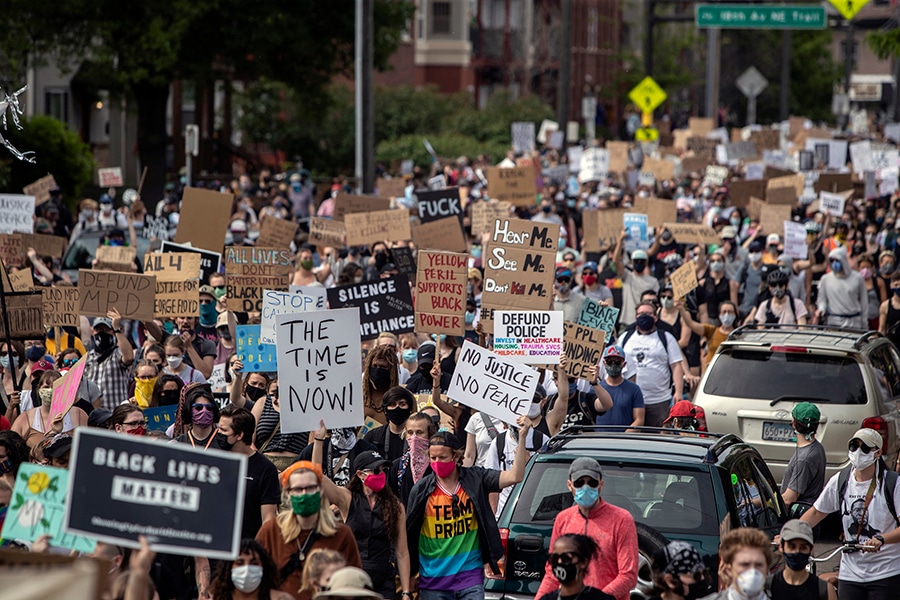
George Floyd Killing: What does defunding or disbanding the police actually mean?
In the wake of nationwide protests in the US, Minneapolis City Council will vote to disband the city police force—what does this mean, how does it help the Black Lives Matter movement and the path to equality, and has it been done before—find out
 Protesters carry signs as they march against police brutality in Minneapolis on Saturday, June 6, 2020. As talk of "defunding" the police circulates through town halls from places like Michigan and Nashville to the halls of Congress, an overwhelming sense has emerged that an idea once on the sidelines, put forth for years by academics and advocacy groups, has finally shifted into the spotlight. (Victor J. Blue/The New York Times)
Protesters carry signs as they march against police brutality in Minneapolis on Saturday, June 6, 2020. As talk of "defunding" the police circulates through town halls from places like Michigan and Nashville to the halls of Congress, an overwhelming sense has emerged that an idea once on the sidelines, put forth for years by academics and advocacy groups, has finally shifted into the spotlight. (Victor J. Blue/The New York Times)
MINNEAPOLIS — Across the country, calls are mounting from some activists and elected officials to defund, downsize or abolish police departments. A veto-proof majority of the Minneapolis City Council pledged on Sunday to dismantle the Minneapolis Police Department, promising to create a new system of public safety in a city where law enforcement has long been accused of racism.
The calls for change have left people uncertain of what those changes would really mean and how cities would contend with crime. Much remains uncertain and the proposals vary from between cities, but here are answers to some questions about the issue.
What does defunding the police mean?
Calls to defund police departments are generally seeking spending cuts to police forces that have consumed ever larger shares of city budgets in many cities and towns. Minneapolis, for instance, is looking to cut $200 million from its $1.3 billion overall annual budget, said Lisa Bender, the City Council president. The police budget in 2020 was $189 million. She hopes to shift money to other areas of need in the city.
If the money doesn’t go to policing, where would it be spent?
©2019 New York Times News Service




